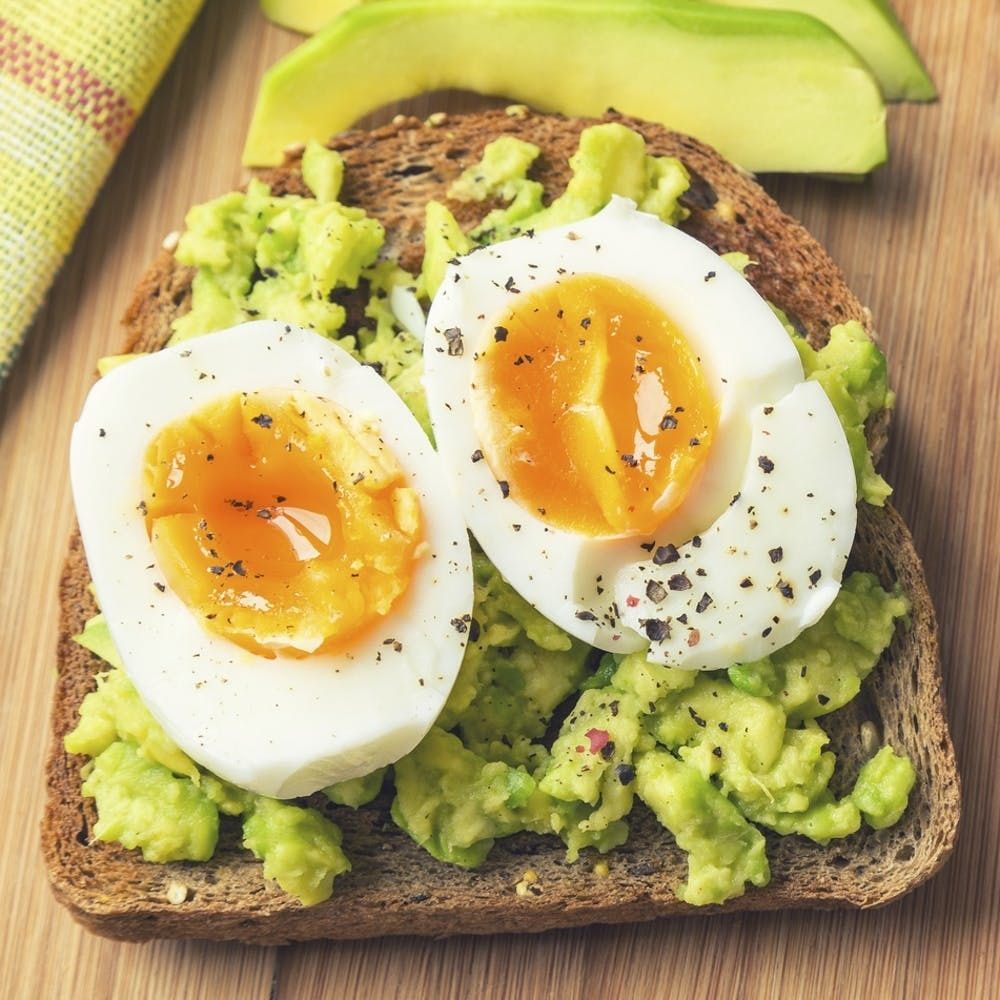Remember when everyone thought it was super healthy to eat low-fat? Maybe not. Maybe you’re more of the school that avoids carbs like the plague. Regardless of which camp you fall into, you probably recall being told that eggs are the devil’s food. Eggs = cholesterol, which means BAD NEWS for your heart. Right? Not so fast.
We love egg recipes as much as the next girl, and we know that eating the right foods (including eggs) can be beneficial for helping us reach our fitness goals. But should we really eat eggs, a high-cholesterol food, with reckless abandon? Here’s what you need to know.

Eggs: Superfood or Indulgence?
So let’s answer one question right off the bat. Are eggs good for you or not? Unfortunately, like so many other questions in this world, the answer to this conundrum isn’t black and white.
Back in the 1970s, scientists began drawing a link between cholesterol and heart disease. They noticed that people who had heart disease also tended to have high cholesterol. Fear abounded, and we collectively began turning toward low-cholesterol alternatives like margarine and vegetable oils.
Well, THAT was a bad idea.
It has become increasingly clear to scientists that dietary cholesterol might not be as closely linked to heart disease as we once thought. The body can make cholesterol all by itself, so the fact that people with heart disease tend to have high cholesterol levels may actually be symptomatic. That is to say, the high cholesterol may be a side effect of chronic disease, rather than the cause of it.
And indeed, new research shows that *dietary* cholesterol — cholesterol obtained through your diet, rather than manufactured by your own body — may not actually correlate with your blood cholesterol levels at all. “There is now general consensus that dietary cholesterol, primarily consumed in eggs, and to a lesser extent in certain seafoods like shrimp, has a relatively small effect in raising blood cholesterol,” Dr. Bruce Griffin tells NPR.
And besides, there are much more dangerous contenders than cholesterol when it comes to heart disease. “Consuming sugar, trans fats, or excessive saturated fat can be more harmful to cholesterol levels than dietary cholesterol itself,” NPR explains.
But are eggs a superfood, as many catchy headlines have claimed? While eggs might not be the worst thing ever in moderate quantities, that doesn’t mean you should be going HAM on your egg consumption. As NPR continues to explain, there’s no concrete evidence one way or the other. About 30 percent of the population are thought to be “hyper responders” to dietary cholesterol, which means that they’re more prone to increases in LDL (“bad”) cholesterol than others.
How Many Eggs Should You Eat?
With all that aside, how many eggs can you safely eat in, say, one week?
According to Keri Gans, RD and author of The Small Change Diet ($8), that’s really going to depend on the rest of your diet. If you eat a lot of proteins and fats throughout the day, increasing your fat consumption even further with eggs is probably a bad idea. But if you eat a balanced diet with plenty of low-fat vegetables, whole grains, and lean meats (ahem, as you should), one to two eggs per day — which equates to about a dozen a week — is probably a safe bet.
“A person needs to look at their total diet to see where they’re getting their saturated fat from,” Gans explains to Women’s Health. “It’s totally healthy to get two eggs a day, but if you like your eggs scrambled with cheese on them, then you’ve just upped your saturated fat and calories by a lot.”
So, feel free to eat those wholesome, healthy eggs in moderation. Just save the cheese, bacon, and sausage for another day. Egg-cellent, right?
What are your favorite healthy meals to make with eggs? Share your meal ideas with us @BritandCo and visit our Pinterest page for recipe inspo!
Brit + Co may at times use affiliate links to promote products sold by others, but always offers genuine editorial recommendations.
(Photos via Getty, Justin Sullivan/Getty)


